How to get rid of a skunk — 7 ways to keep them off your yard
Here's how to get rid of a skunk
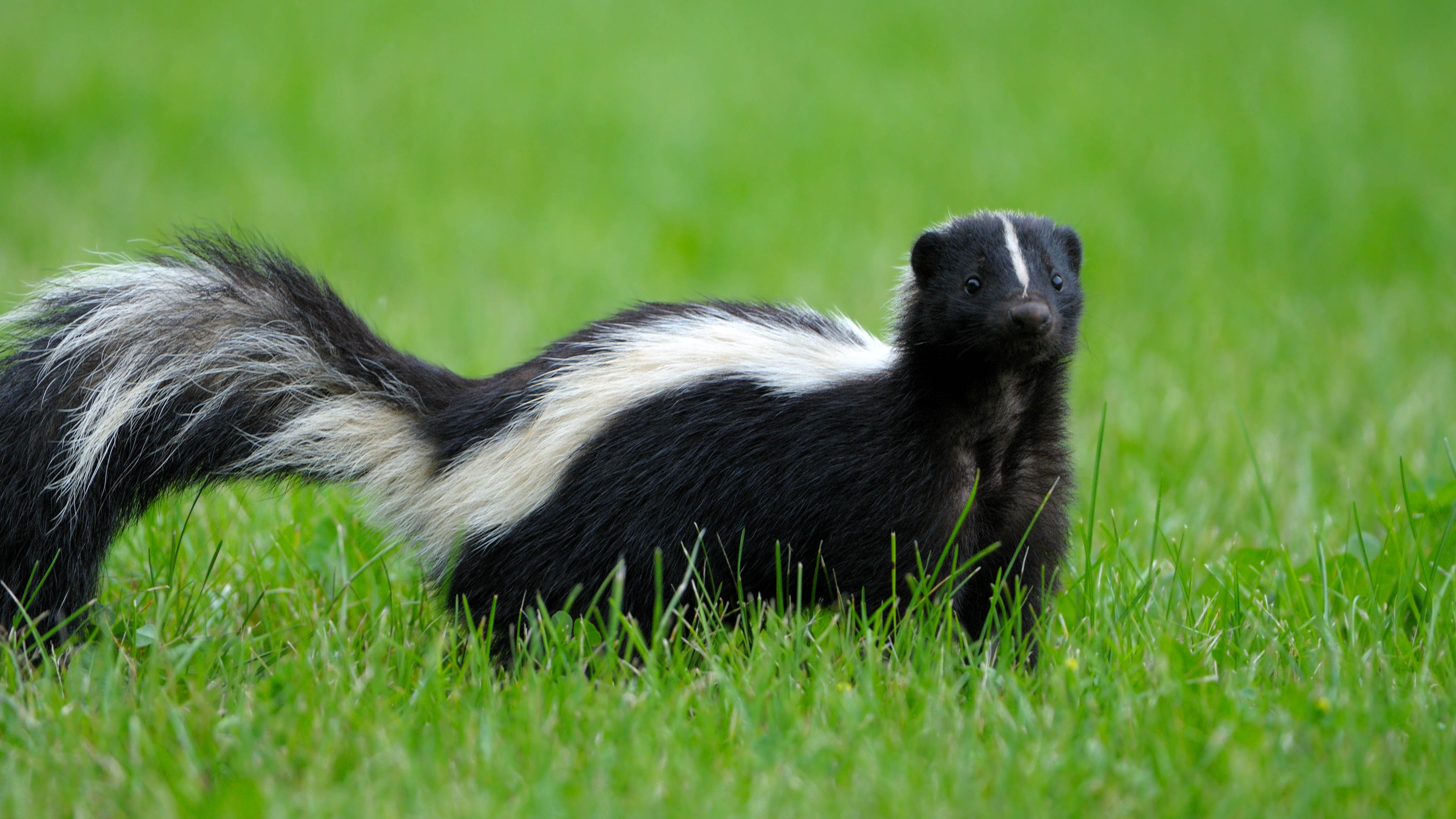
If you spot this furry creature in your backyard, you'll want to know how to get rid of a skunk fast. Although skunks have a bad reputation, they’re actually quite gentle animals, as they eat insects and rodents, which can be beneficial to you.
However, they can also rummage through your trash looking for fruit (a favorite item), and other types of foods, dig in your yard for grubs, steal your pet’s food (dogs, cats, and even birds), and of course, emit powerfully offensive odors. Worse case, they could possibly carry rabies. That's why it’s in your best interest to get rid of skunks that have wandered onto, or have taken up residence in your yard.
Fortunately, there are ways to stop these critters from becoming unofficial members of your family. So, if you want to deter these unwanted visitors, here's how to get rid of a skunk and keep them away from your property.
1. Secure your garbage
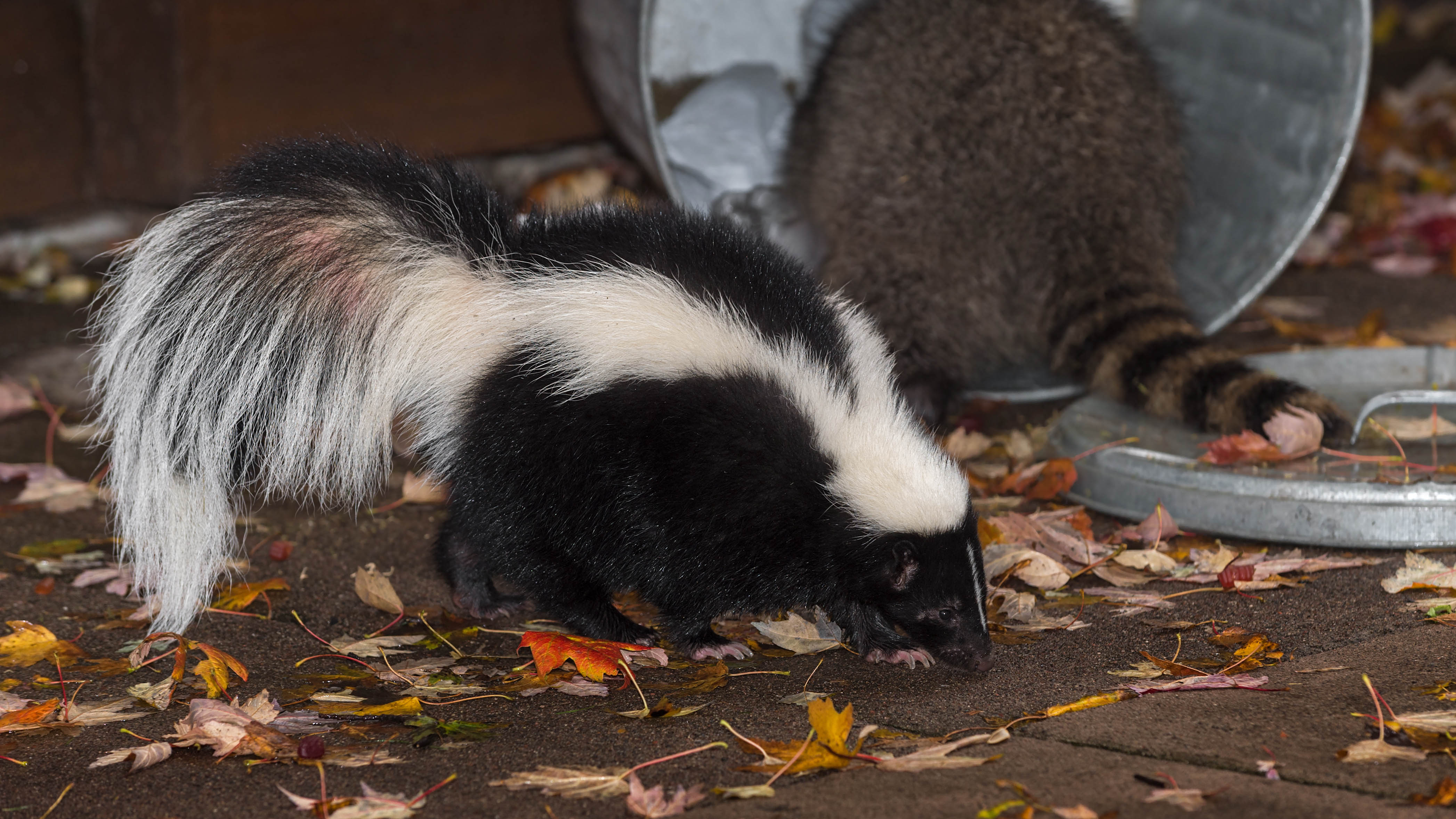
Skunks are attracted to areas where they can find food sources. However, according to Roger Dickens, bird and wildlife technical services manager with Ehrlich Pest Control, they’re not good climbers. “They will often forage for food in trash cans that have been turned over by raccoons. Depending on the type of trash can you have, another option is to install locks on them to keep them closed if they are tipped over." So, you can’t afford to have overflowing garbage because the lids need to fit tightly.
This sentiment is shared by Lori Johnson, president of The Grounds Guys. “These nocturnal creatures are notorious for raiding garbage cans and leaving trash strewn in your yard, so I recommend using tight-fitting, weighted, or clamped lids on garbage receptacles that can't be tipped over.”
2. Remove other food sources
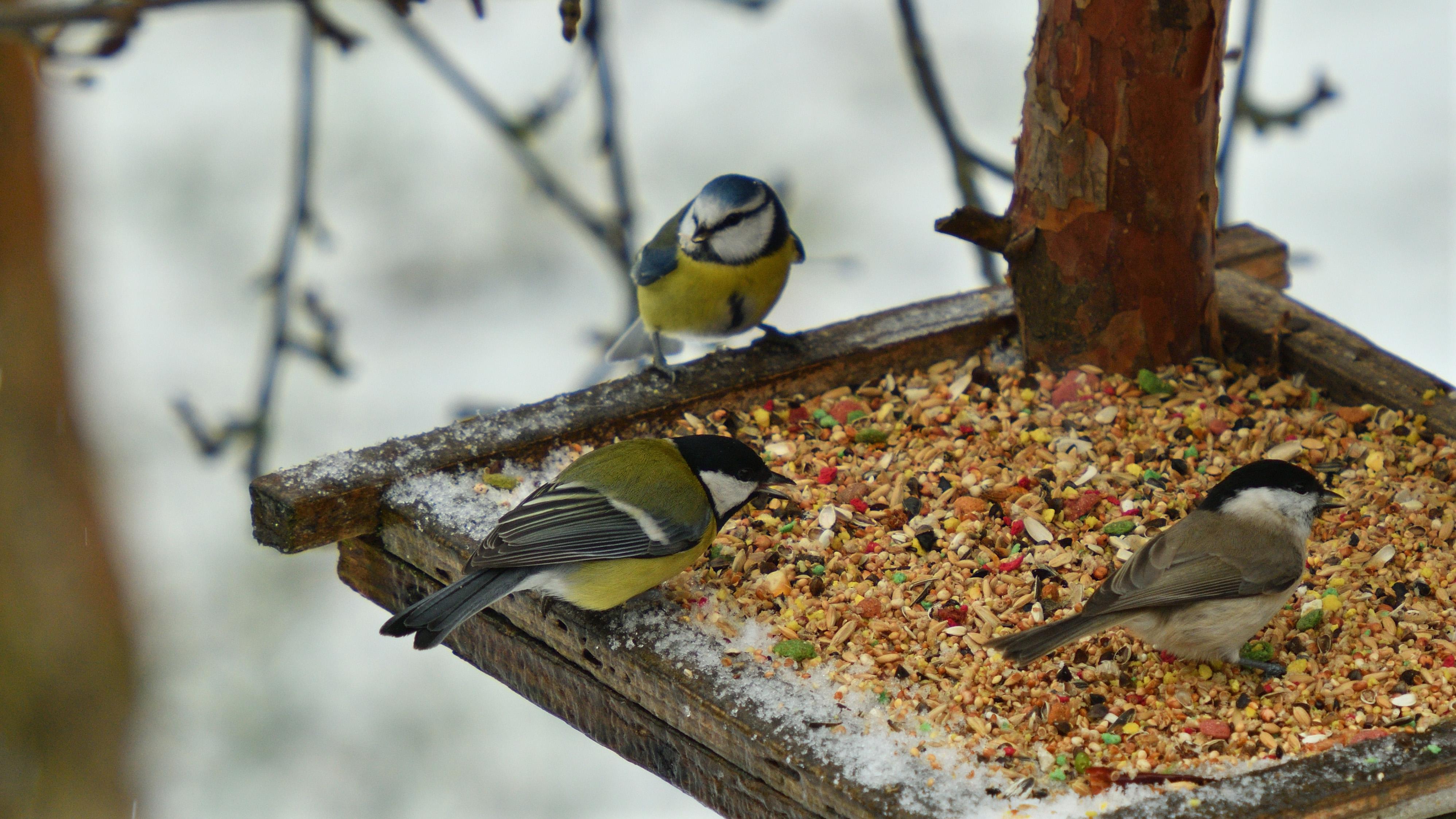
Turning over trash cans isn’t the only nuisance that skunks pose. If you leave food out for your four-legged friends, they will partake of that as well. So, don’t leave your pet’s food outside for extended periods of time. Call them over to eat it as soon as you place it outdoors, and then remove those containers as soon as they finish.
And since skunks like insects, ensure that you not creating an environment that attracts the latter. Sources of standing water appeal to insects, and insects attract skunks.
Get instant access to breaking news, the hottest reviews, great deals and helpful tips.
Also, since skunks will dine on bird food, make sure you don’t have flimsy bird feeders that can be knocked over. And here’s something else to consider: although birds build their nests up high, they tend to drop all manner of insects on the ground, creating food sources for skunks. So eliminate standing water, and possibly reconsider your desire to attract birds to your property.
3. Tend to your lawn
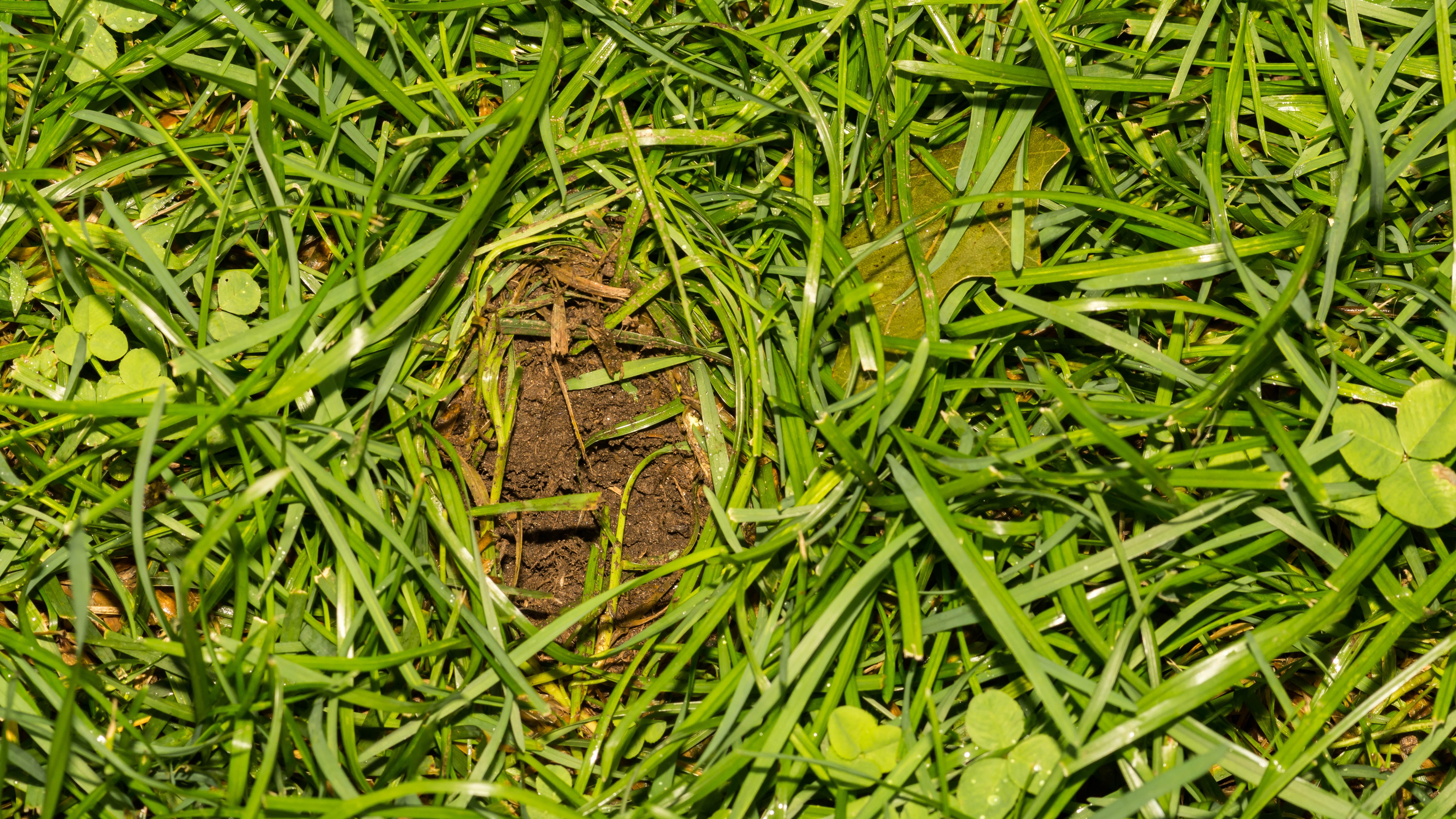
Your lawn is actually a playground for skunks. “Lawns—especially newly created ones—are immensely attractive to skunks, as they tend to be heavily watered and loaded with worms and grubs,” explains Meg Pearson, training manager at Critter Control, a humane wildlife removal company. “Skunks dig small holes where grubs are located, which can make your lawn ugly quite quickly.”
To stop them from doing this, Pearson recommends laying down one inch mesh chicken wire, and then securing it with stakes or heavy stones. This should be enough to deter them, and keep them away.
Prevent overwatering by finding out the best time to water your lawn, and these are the 5 signs that your lawn needs urgent repairs.
4. Block access to denning sites
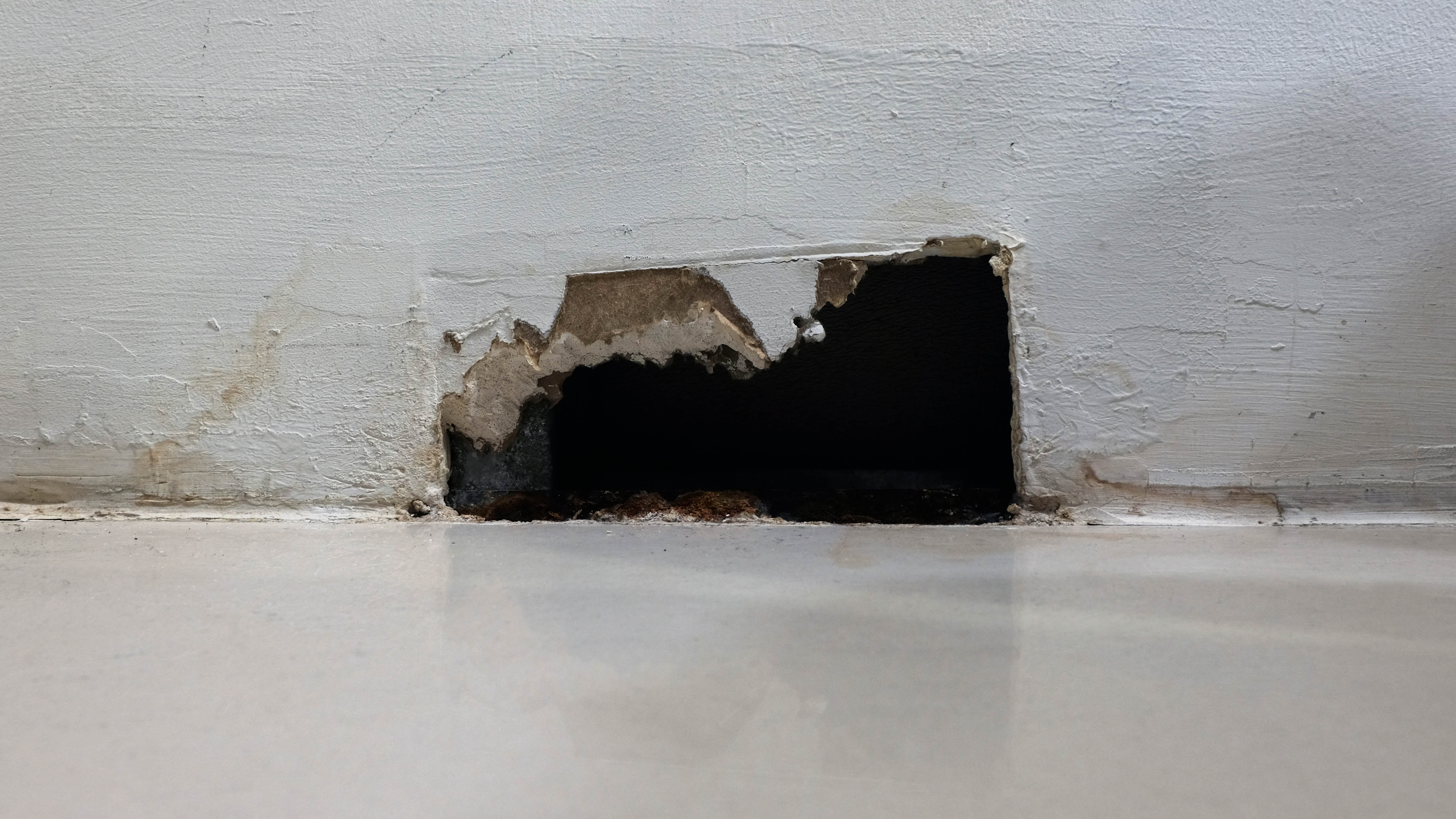
Skunks aren’t just coming to your home for food, and like any pest, they also need shelter. “It’s also important for homeowners to prevent access to denning sites, as skunks will readily den under houses, sheds, or porches, if given the chance,” says Pearson.
It's recommended to close off these areas with ¼-inch hardware cloth, boards, or metal flashing – and make sure all connections are flush and secure. As a bonus, this will also help you keep mice and rats out as well. Also, make sure that you’re not creating any hiding places with woodpiles and debris.
5. Offensive smells

Skunks are known to emit offensive odors whenever they feel threatened. However, there are certain scents that they find undesirable, and offensive. “Orange and lemon peels will keep them away, as will Cayenne pepper,” says Johnson.
She also recommends sulfur pellets as another solution that is offensive to their sense of smell.
6. Use lights and sounds
Since skunks are nocturnal, consider using light as a deterrent. Bright lights, flashing lights, and loud noises can disrupt their preferred environmental setting. Just be sure that you’re not disrupting the neighbors as well.
Alternatively, you can purchase predator, strobe light deterrents such as this Lycoming Solar Predator Control Light ($23, Amazon) to scare skunks or any other night time predator away.
7. Try humane trapping
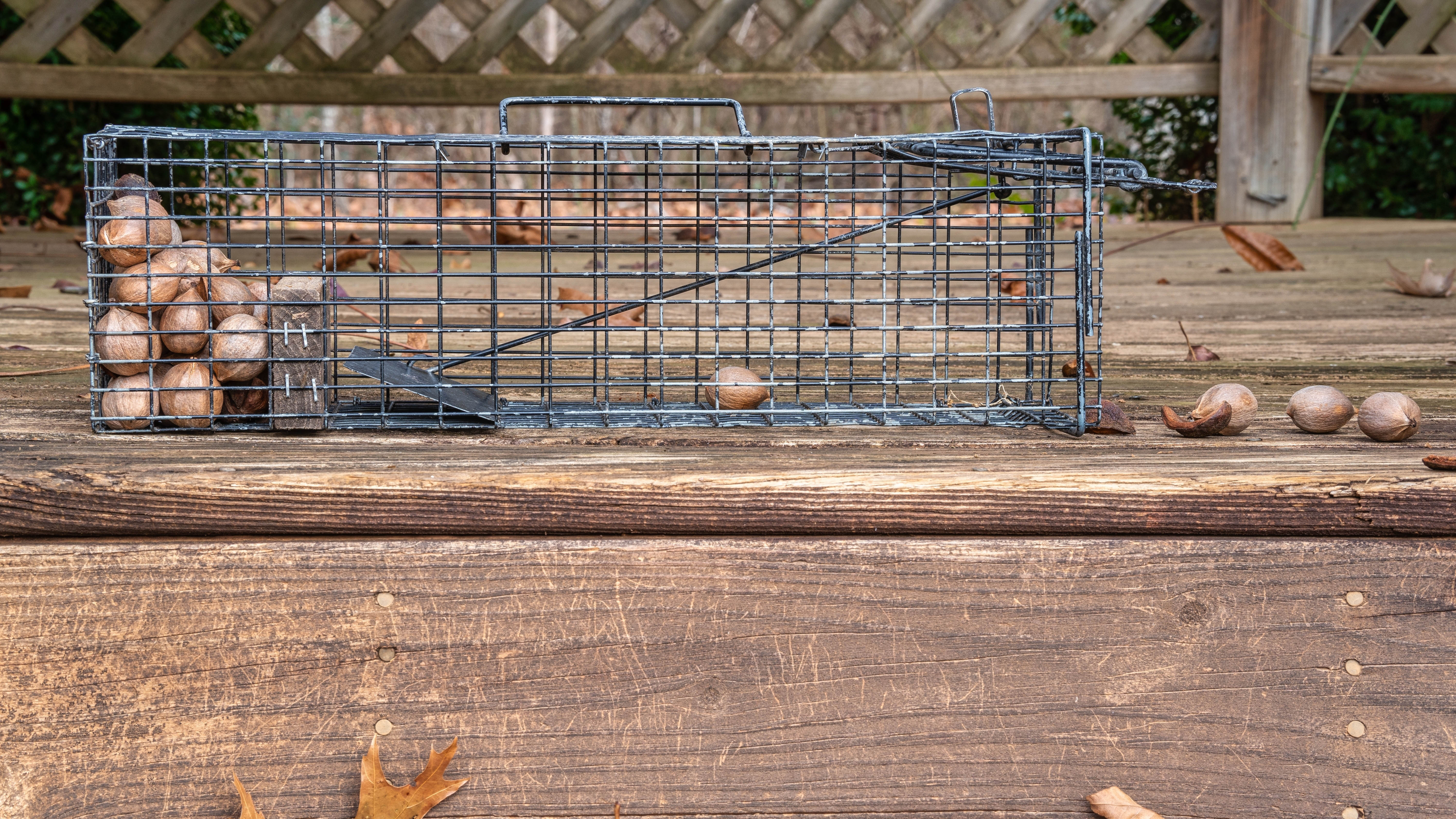
While this method may not be a favorite, you can try to get rid of a skunk humanely. “If these creatures cause ongoing and extensive damage, you may need to use a humane catch-and-release trap,” says Johnson.
Just check to ensure it’s legal in your municipality or state. And keep in mind, it’s possible that once the skunk has been caught, it might release its notorious spray on you when you pick up the trap.
In addition, if you suspect that there are skunks on your property, it;s always recommended keeping your pets leashed. This will prevent dogs being sprayed by skunks, which can then spread throughout your home.
Call in the professionals
If all else fails however, the best solution is to call in the professionals to handle your skunk problem. “Mishandling skunks can result in being sprayed, causing a horrible odor and in some cases vomiting and temporary blindness if sprayed in the eye(s),” warns Dickens.
Also, your situation may require more than just removal of the skunk. “It's important to employ a professional to do a thorough inspection of your property to identify the skunks' entry points, nesting areas, and any attractants that may be drawing them to your home,” explains Pearson.
This assessment helps to create an appropriate removal plan. “Skunks are burrowers and typically will burrow under foundations, sidewalks, and AC unit pads.” Professionals would start by trapping the animals currently under foundations, decks, etc., and then install exclusion devices to keep them from gaining access again.
Signs of having a skunk around your property
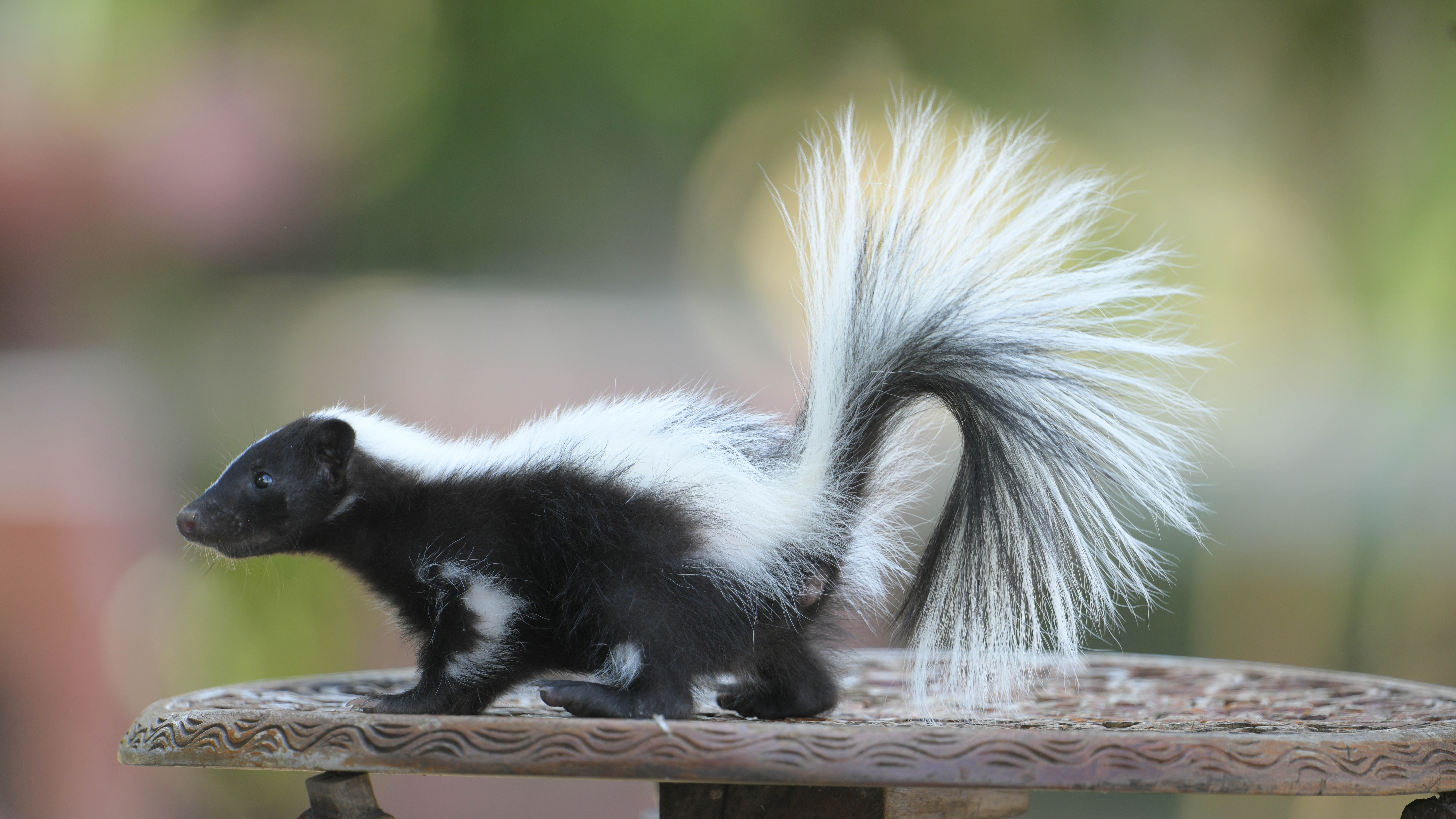
If you haven’t actually seen a skunk, you’ll definitely smell the foul odor. “Other signs would be shallow holes (1-2 inches deep) throughout the yard,” Dickens says. This means that they’re foraging for grubs and earthworms. “Lastly, would be signs of digging near the shed, porch, deck, or patio, which is the sign of a skunk burrowing to create a nesting burrow. "
So just keep an eye out the next time you're relaxing in the backyard.
Skunk patterns throughout the year
The time of year can determine why skunks are attracted to your yard and dictate their actions.
In the spring, they tend to emerge from their overwintering burrows. “They will often be transients searching for food or birthing burrows,” says Dickens. “Male skunks this time of year can also be trying to establish their own territories.” It's also recommended waiting to see if the skunk moves along, before calling a wildlife control specialist to trap it.
During the summer, both male and female skunks have established their territories and home ranges, so you’ll need to call in the pros to remove them. While in the fall and winter months, skunks are preparing for hibernation. “This is the most difficult time of year to know a skunk is present, since they are not very active and often do not spray or dig burrows.”
On warmer nights, they might emerge and dig in the yard for food, but the skunk may move along by spring.
More from Tom's Guide
- Here's how to get rid of rats quickly and safely
- Or check out how to get rid of moles
- These 9 plants will repel snakes and keep them away from your yard

Terri is a freelance writer living in Birmingham, AL. She is an experienced mattress and bedding product reviewer, and has tested hundreds of home and tech products, with bylines at Architectural Digest, Popular Science, CNN Underscored, NBC News, The Daily Beast, USA Today, Homes & Gardens, Bob Vila, and Tom's Guide.
 Club Benefits
Club Benefits





